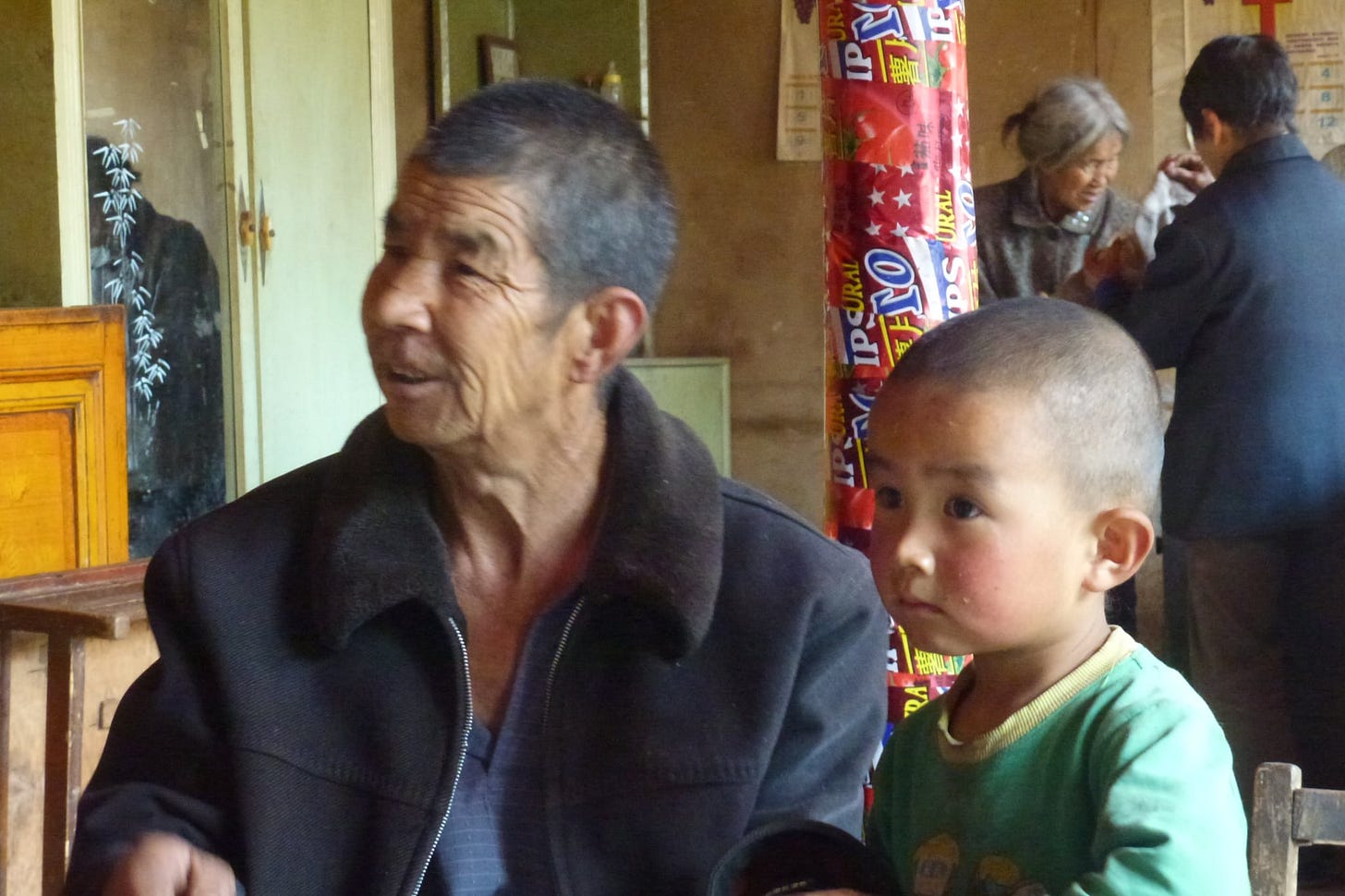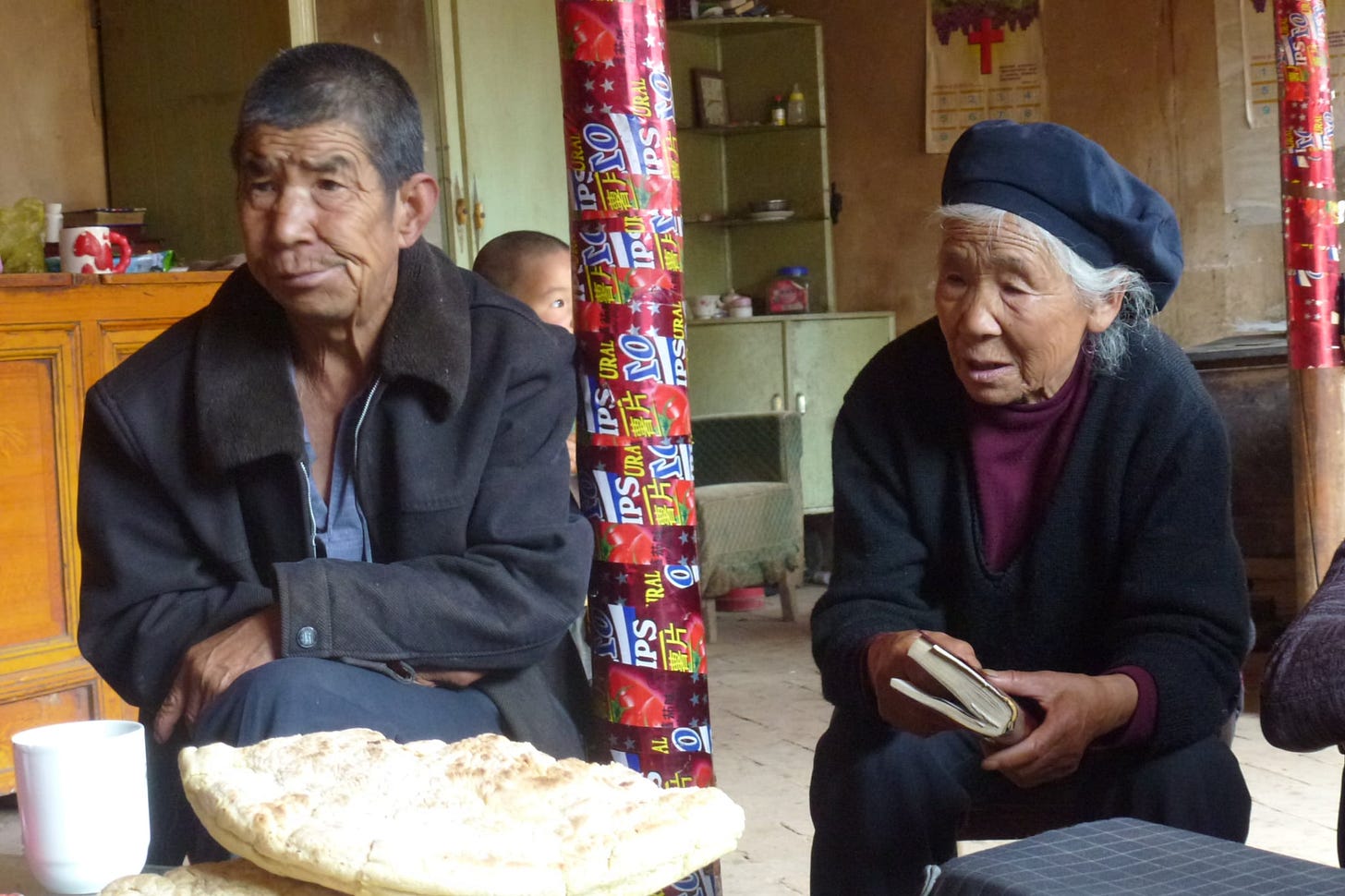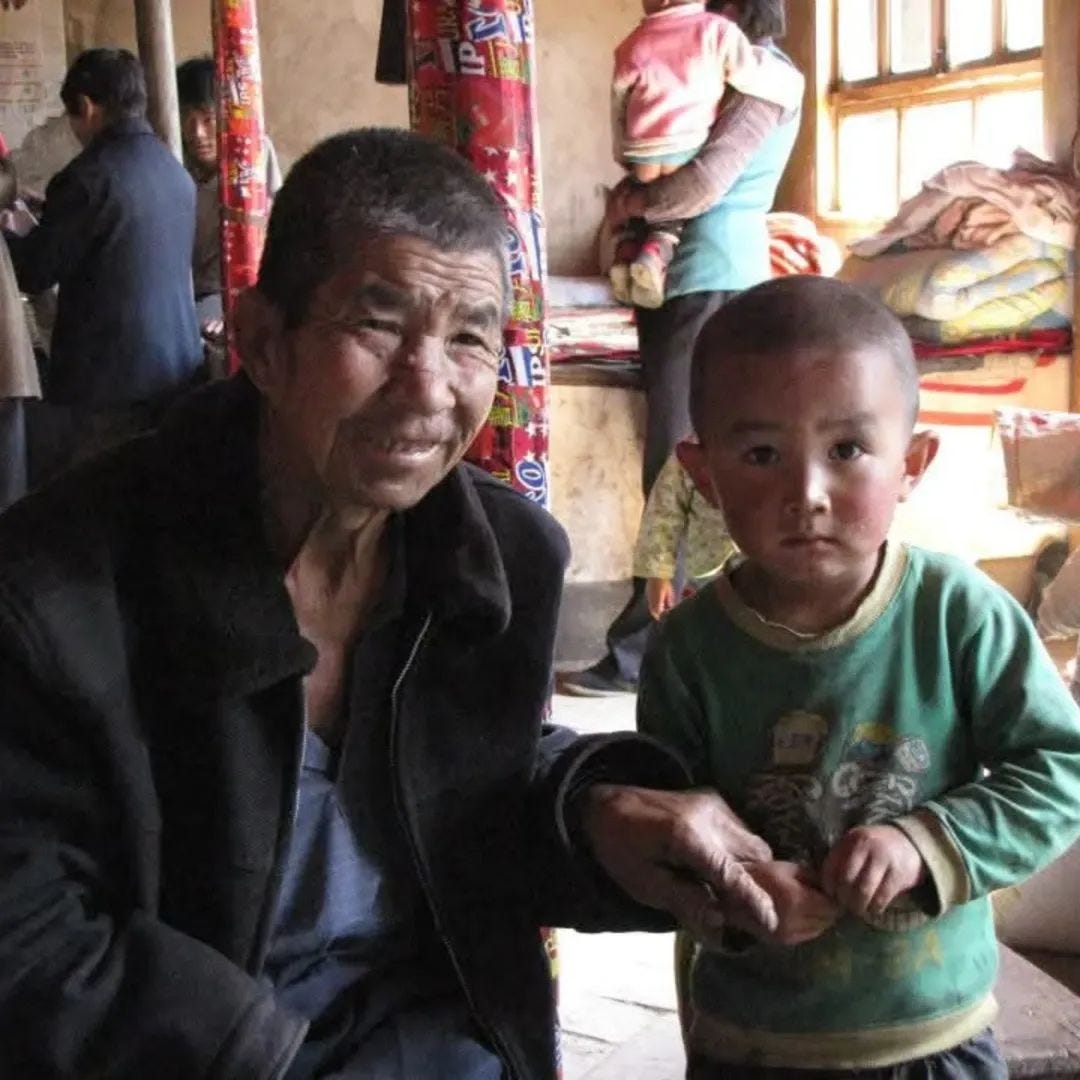Listen to the audio version of this post on my latest “Prison Pulpit” podcast.
On Sundays in China’s “Little Mecca”, Christian Chinese villagers (very much the minority) would arrive by bike, on foot, or by minibus from rural areas all around, some from hours away. My friend Brother Bai and whoever joined him from his remote valley to the south had to travel further than most, walking up and over a mountain before taking a minibus (for an hour or so) to town, then finally walking (or taking another city bus) to the church on the far side of the little city.
I can’t remember exactly when I first met Brother Bai, but it was sometime between 2007 and 2012 (big range, I know). He was a regular attendee at the prefectural Chinese church, which gathered for most of the day each Sunday, with a series of prayer meetings, Bible studies, preaching, and fellowship times that stretched from early morning until mid-late afternoon.
Introducing Brother Bai
Brother Bai (“Bai” means “White”) stood out to me in part because of his noticeable speech impediment, but also for his friendly personality. It wasn’t always easy to communicate with him, not only due to his speech difficulties, but because his native tongue was the local dialect, literally a “poor man’s” version of Mandarin that has developed over centuries in the remote mountains of northwest China.
As we spoke, I observed both his love for the Lord, as well as the hard life he had lived. He seemed to be the only believer in his family. I wanted to get to know him better, and hopefully to encourage him in some way. So I asked Brother Bai (with the help of some of the other guys in church) to explain how I might find his valley and village and visit him some day.
Brother Bai in His Native Habitat
As previously mentioned, I can’t remember when I first made the drive out to try and find Brother Bai in his “native habitat”. I don’t recall if I was driving my old motorcycle or my old Chinese minivan. I do remember crossing a creek on a fallen log, wanding up a hillside and wondering which of the handful of farmhouses might be the one.
After locating what I thought was the correct house, I began interrogating the older lady who answered the door, asking where I might find Brother Bai. The potential strangeness of the scene wasn’t lost on me; tall, white American wandering the hills of Nowhere, China asking for random people by just one syllable of their name: Brother “Bai”. Bai was his surname. To this day I don’t know his full three-syllable name.
Memories have faded, but at some point soon after getting the lady to understand who I was asking for, and receiving a hopeful response (he’s around here somewhere), I kid you not, Brother Bai came crawling out of the bushes next to me with a shy grin on his face. He was happy to see me, and I was thrilled to see him. He had a bag full of some sort of mountain root that he had been digging up “in the bush” to later sell for profit. I assume that’s how he helped to support himself in this particular part of rural China.
I don’t remember much else about that day, but I visited that same valley, village, and house a few more times. We had a Bible study, prayer, and singing on at least two different occasions, including once when I brought my parents and some visiting friends along for a visit. Most of the folks (there were just a handful) didn’t make the weekly trek to church like Brother Bai. This wasn’t an official church, but sort of an unofficial meeting point for prayer and fellowship.
The Mistreatment of Brother Bai
Brother Bai’s story is not all nice. His wife was more disabled than he was, and stuck in bed. We never met her, and it was unclear if she was a believer or not. I think she was, but her kids “took care” of her and were aggressively anti-Christian. He spoke to me about physical beatings from his kids (daughter or dauther-in-law?), but the details were unclear. But it was obvious they were not happy that he was so involved in the small Christian community. I wish I had been able to find out, or understand, more.
Not Forgotten
This story ends (although, in Christ, it’s not fully over!) much how it began. I can’t recall precisely the last time I saw Brother Bai. It seems to me I asked for him at church in 2017 or 2018, and I was told he was sick. Then I was deported in 2018. I probably did see him at church for the last time sometime between 2016-2018.
Later, after my deportation, I attempted to send friends of mine to find him and visit him in the village a couple of times, but with no luck. It was just too hard for a newcomer to find the right spot on the village road, the correct creek crossing, the particular farmhouse, etc…
And finally, one possible reason as to why Brother Bai (who would now be in his 70s?) may be hard to find these days is that he has passed on and gone to be with the Lord. I wish I knew. But in the meantime, we can continue praying for him, for the other poor village Christians in that region, and for others like him who serve the Lord in through many trials, difficulties, and toils in a land that has grown not less, but more, godless and Communist (but I repeat myself) in the last decade or more.
Hebrews 13:3 admonishes us to “remember those who are in prison”, but it also adds “and those who are mistreated”. Brother Bai definitely falls into that latter category.
Let’s remember to pray for Brother Bai and all those in the Body of Christ who are mistreated by a tyrannical government and/or their own children (or children-in-law), as if we were the ones in their shoes, fighting their battles, living in their world.
Brother Bai, you may be hard to find, but you are not forgotten! See you soon, either in the hills of Hezheng or in the Kingdom to come!






